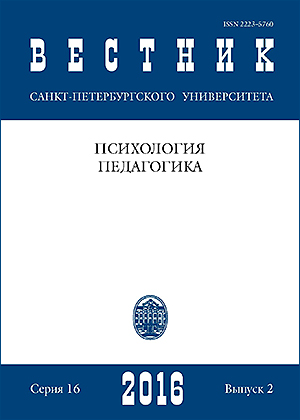Оnline gaming motivation according to Self-Determination Theory (SDT)
Abstract
Th is article contains a short overview of the modern studies on the gaming motivation and the description of an original study designed by the authors. Th e study revealed the similarities and the differences in motivations within the Russian-speaking, European and American online games players, using GAMS — Gaming Motivation Scale. Th e main fi nding is the prevalence of intrinsic motivation in the motivation structure of all explored groups that can indicate a similar motivation for online games playing regardless of the region and of games genre. While the motives for games playing can be rather diff erent, the proportion of intrinsic and extrinsic motivations within gamers stays the same.
Keywords:
motivation, motives, online gaming, culture, Self-Determination theory
Downloads
References
References
Downloads
Published
How to Cite
Issue
Section
License
Articles of "Vestnik of Saint Petersburg University. Psychology" are open access distributed under the terms of the License Agreement with Saint Petersburg State University, which permits to the authors unrestricted distribution and self-archiving free of charge.




